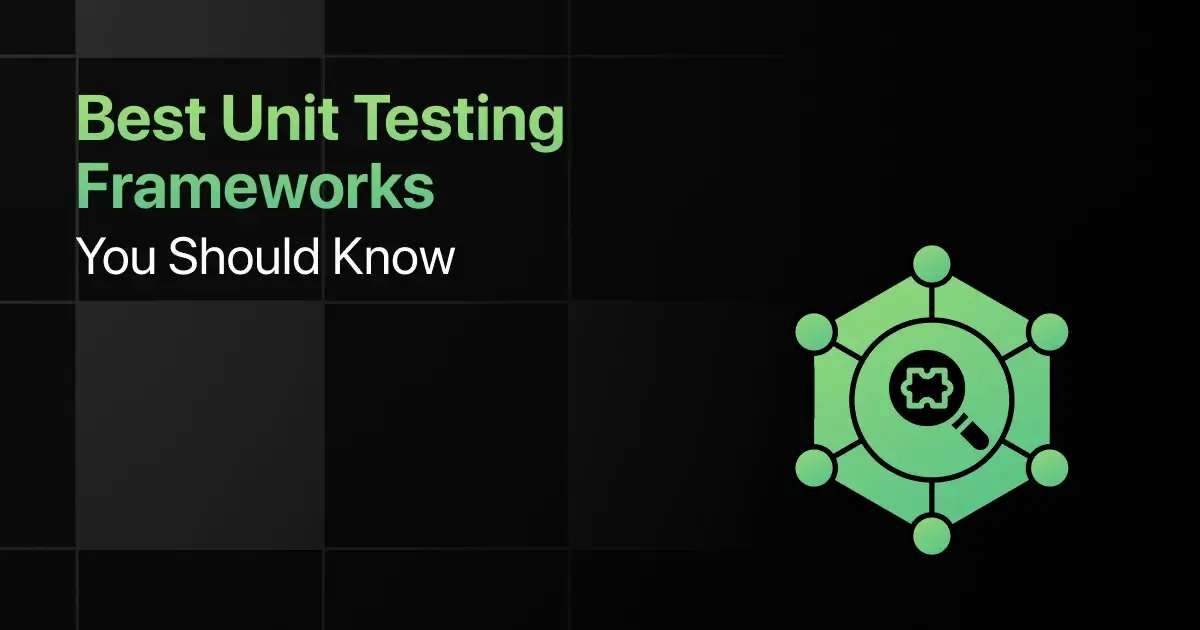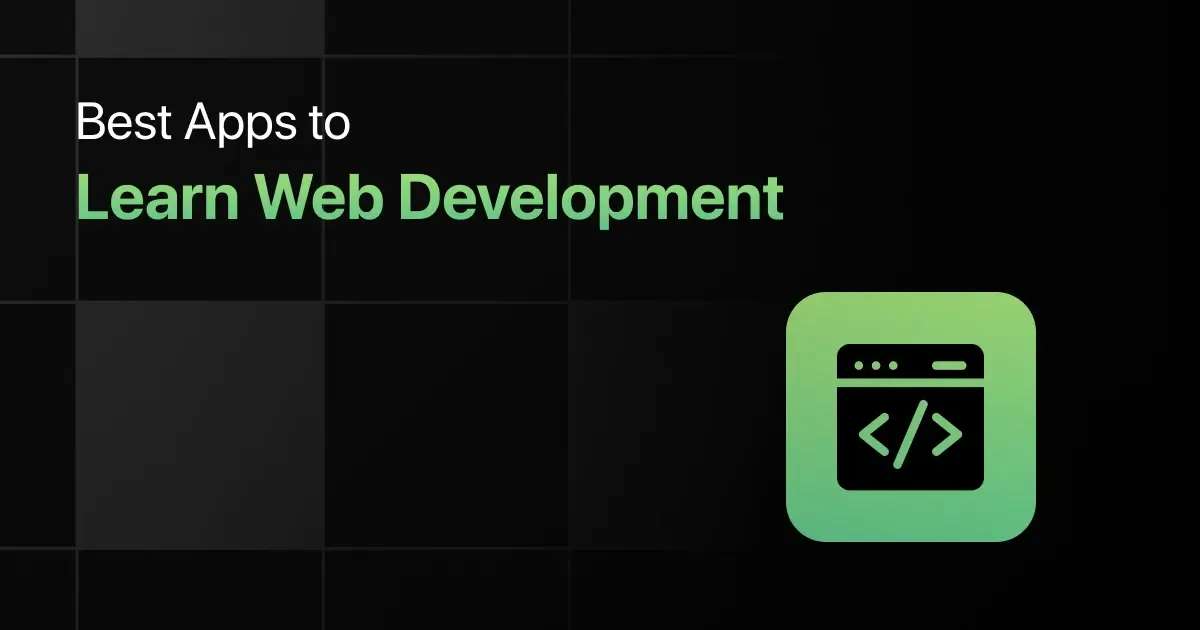Best Unit Testing Frameworks You Should Know

Unit testing frameworks are essential tools for developers. They provide a structured foundation to build and maintain robust and reliable code.
This blog will explore a unit-testing framework list and highlight the unique features of the best unit-testing frameworks and libraries.
If you’re looking for unit testing frameworks for beginners or aiming to conduct a unit testing frameworks comparison, this guide has you covered.
Top Unit Testing Frameworks – Overview
Here’s an overview of the 10 best frameworks for unit testing:
| S.No. | Framework Name | Key Features | Ease of Integration | Download Link |
|---|---|---|---|---|
| 1 | JUnit | Annotations, Assertions | Easy | Download |
| 2 | NUnit | Annotations, Test Runners | Easy | Download |
| 3 | TestNG | Annotations, Data-Driven Testing | Medium | Download |
| 4 | Mocha | Asynchronous Testing, Extensible | Easy | Download |
| 5 | Jasmine | Clean Syntax, Matchers | Easy | Download |
| 6 | PyTest | Simple Syntax, Fixtures | Easy | Download |
| 7 | Selenium | Cross-Browser Testing, Multi-Language | Medium | Download |
| 8 | xUnit | Extensible, Parallel Execution | Medium | Download |
| 9 | Cypress | Real-Time Reloads, Automatic Waiting | Easy | Download |
| 10 | Playwright | Cross-Browser, Automated UI | Easy | Download |
Most Popular Unit Testing Frameworks You Should Know
Below are the top 10 unit testing frameworks you should know:
1. JUnit
JUnit is a widely used open-source framework for writing and running tests in Java.
It is known for its simplicity and integration with various development tools.
Popularity:
- Widely used in Java development.
- Strong community support.
- Integrated into many IDEs.
Key Features:
- Annotations for test methods
- Assertions for testing expected results
- Test runners for executing tests
Learning Curve: Easy
Performance: Good performance for unit testing
Compatibility:
- Works with Java.
- Integrates with Maven and Gradle.
Ease of Integration: Easy
Use Cases and Industry Adoption:
- Unit testing for Java applications
- Regression testing
- Continuous integration
Job Market Demand:
- High demand in Java development roles.
- Used by enterprises and startups.
- Preferred for robust testing solutions.
2. NUnit
NUnit is a unit-testing framework for all .Net languages. It is a prevalent and widely-used framework, known for its flexibility and ease of use.
Popularity:
- Widely used in .NET development.
- Strong community support.
- Preferred for .NET applications.
Key Features:
- Annotations for defining tests
- Assertions for verifying conditions
- Test runners for executing tests
Learning Curve: Easy
Performance: Good performance for unit testing
Compatibility:
- Works with .NET languages.
- Integrates with Visual Studio.
Ease of Integration: Easy
Use Cases and Industry Adoption:
- Unit testing for .NET applications
- Integration testing
- Continuous integration
Job Market Demand:
- High demand in .NET development roles.
- Used by enterprises and tech companies.
- Preferred for comprehensive testing.
3. TestNG
TestNG is a testing framework inspired by JUnit and NUnit but introduces new functionalities.
It is more powerful and easier to use, especially for complex integration testing.
Popularity:
- Popular in Java development.
- Strong community support.
- Preferred for advanced testing scenarios.
Key Features:
- Annotations for test configuration
- Data-driven testing
- Parallel test execution
Learning Curve: Medium
Performance: Good performance with advanced features
Compatibility:
- Works with Java.
- Integrates with Maven and Gradle.
Ease of Integration: Medium
Use Cases and Industry Adoption:
- Integration testing
- Functional testing
- Data-driven testing
Job Market Demand:
- High demand in enterprise-level projects.
- Used by tech companies and financial institutions.
- Preferred for complex testing requirements
4. Mocha
Mocha is a feature-rich JavaScript test framework running on Node.js, making asynchronous testing simple and fun.
It is widely used for both client-side and server-side JavaScript applications.
Popularity:
- Popular in JavaScript development.
- Strong community support.
- Preferred for Node.js applications.
Key Features:
- Asynchronous testing
- Browser support
- Extensible with plugins
Learning Curve: Easy
Performance: Good performance with asynchronous support
Compatibility:
- Works with Node.js.
- Integrates with various assertion libraries.
Ease of Integration: Easy
Use Cases and Industry Adoption:
- Unit testing for JavaScript applications
- Integration testing
- Continuous integration
Job Market Demand:
- High demand in web development.
- Used by startups and tech companies.
- Preferred for JavaScript testing.
5. Jasmine
Jasmine is a behavior-driven development framework for testing JavaScript code.
It is designed to be simple and easy to use, making it a popular choice for front-end testing.
Popularity:
- Widely used in front-end development.
- Strong community support.
- Preferred for behavior-driven development.
Key Features:
- Clean and simple syntax
- Built-in matchers
- Asynchronous testing support
Learning Curve: Easy
Performance: Good performance with clear test syntax
Compatibility:
- Works with JavaScript.
- Integrates with various JavaScript libraries.
Ease of Integration: Easy
Use Cases and Industry Adoption:
- Unit testing
- Behavior-driven development
- JavaScript testing
Job Market Demand:
- High demand in front-end development.
- Used by tech companies and startups.
- Preferred for behavior-driven testing.
6. PyTest
PyTest is a mature full-featured Python testing tool that helps you write better programs.
It is simple, scalable, and supports fixtures for managing test dependencies.
Popularity:
- Widely used in Python development.
- Strong community support.
- Preferred for its simplicity and power.
Key Features:
- Simple syntax
- Fixtures for managing setup and teardown
- Plugin support
Learning Curve: Easy
Performance: Good performance for Python testing
Compatibility:
- Works with Python.
- Integrates with other Python libraries.
Ease of Integration: Easy
Use Cases and Industry Adoption:
- Unit testing for Python applications
- Functional testing
- Continuous integration
Job Market Demand:
- High demand in Python development.
- Used by startups and tech companies.
- Preferred for Python testing.
7. Selenium
Selenium is a portable framework for testing web applications. It provides a playback tool for authoring tests without the need to learn a test scripting language.
Popularity:
- Widely used for web application testing.
- Strong community support.
- Preferred for cross-browser testing.
Key Features:
- Cross-browser testing
- Supports multiple programming languages
- Integrates with various testing tools
Learning Curve: Medium
Performance: Good performance for web testing
Compatibility:
- Works with Java, C#, Python, and more.
- Integrates with CI/CD tools.
Ease of Integration: Medium
Use Cases and Industry Adoption:
- Functional testing
- Regression testing
- Cross-browser testing
Job Market Demand:
- High demand in web development.
- Used by tech companies and enterprises.
- Preferred for web automation testing.
8. xUnit
xUnit is a free, open-source, community-focused unit testing tool for the .NET framework.
It is the latest technology for unit testing C#, F#, VB.NET, and other .NET languages.
Popularity:
- Widely used in .NET development.
- Strong community support.
- Preferred for its modern approach.
Key Features:
- Extensible with plugins
- Annotations for test configuration
- Support for parallel test execution
Learning Curve: Medium
Performance: Good performance for .NET testing
Compatibility:
- Works with .NET languages.
- Integrates with Visual Studio.
Ease of Integration: Medium
Use Cases and Industry Adoption:
- Unit testing for .NET applications
- Integration testing
- Continuous integration
Job Market Demand:
- High demand in .NET development.
- Used by tech companies and enterprises.
- Preferred for modern .NET testing.
9. Cypress
Cypress is a modern end-to-end testing framework built for the web. It focuses on making testing easy and fast, with a user-friendly interface and powerful features.
Popularity:
- Growing rapidly among developers.
- Preferred for modern web applications.
- Strong community support.
Key Features:
- Real-time reloads
- Automatic waiting
- Simple setup
Learning Curve: Easy
Performance: High performance with fast test execution
Compatibility:
- Works with all modern browsers.
- Integrates with JavaScript and TypeScript.
Ease of Integration: Easy
Use Cases and Industry Adoption:
- End-to-end testing
- Component testing
- Web application testing
Job Market Demand:
- Increasing demand in modern web development.
- Used by startups and tech companies.
- Preferred for fast and reliable testing.
10. Playwright
Playwright is a Node.js library to automate Chromium, Firefox, and WebKit with a single API.
It is designed for end-to-end testing.
Popularity:
- Growing in popularity.
- Preferred for modern web applications.
- Used in agile development.
Key Features:
- Cross-browser testing
- Automated UI testing
- Fast execution
Learning Curve: Medium
Performance: High performance with multi-browser support
Compatibility:
- Works with JavaScript/TypeScript.
- Supports Chrome, Firefox, and Safari.
Ease of Integration: Easy
Use Cases and Industry Adoption:
- End-to-end testing
- Cross-browser testing
- UI testing
Job Market Demand:
- Increasing demand in web development.
- Used by tech companies and startups.
- Preferred for comprehensive web testing.
Frequently Asked Questions
1. What are the best unit testing frameworks to use?
The best unit testing frameworks to use are:
- JUnit
- NUnit
- TestNG
- Jasmine
- Mocha
2. What key features should I look for in a unit testing framework?
The key features to look for in a unit testing framework are ease of use, support for various languages, integration capabilities, and robust reporting.
3. Which unit testing frameworks are easiest to learn for beginners?
JUnit and Jasmine are the easiest unit testing frameworks to learn for beginners.
4. What are the common use cases for different unit testing frameworks?
Common use cases include unit testing for Java applications (JUnit), .NET applications (NUnit), and JavaScript applications (Jasmine).
5. What are some lightweight unit testing frameworks for rapid application development?
Some lightweight unit testing frameworks for rapid application development are Mocha, Jasmine, and QUnit.
6. Which unit testing frameworks are used by top companies?
Top companies use JUnit, NUnit, and TestNG for their robust and comprehensive testing needs.
7. What is the job market demand for skills related to unit testing frameworks?
There is a high demand for skills related to JUnit, NUnit, and TestNG in software development and QA roles.
Final Words
For beginners, starting with the recommended unit testing frameworks in this blog can ease your learning curve.
Mastering the top 10 unit testing frameworks will equip you with the knowledge and tools to build robust and reliable code.
Explore More Frameworks
Related Posts


Best Apps to Learn Web Development
Ever thought about building your own website or launching a career in tech but don’t know where to start? With the …









